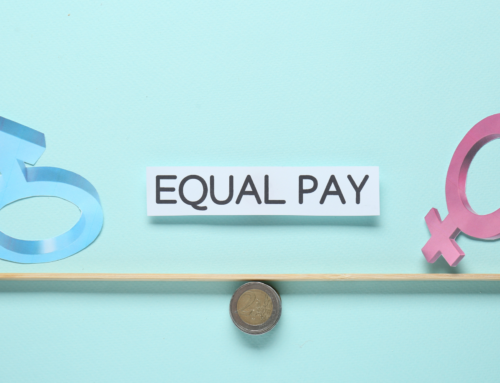What every small or growing business should consider when preparing a social media policy. Check out our simple advice around Do’s and Don’ts…
You don’t need be Einstein to know that social media is a VERY effective tool in marketing your business for a very low cost. It’s an absolute goldmine when it comes to getting your brand out there and connecting more directly with your customers. It’s also fast becoming a great way of finding your next star employee. Although beware, if you don’t have all your ducks in a row it is also capable of becoming your next workplace nightmare.
The reality is that your employees are likely to have created online friendships with each other and perhaps even some of your customers or clients. You too might also be buddies online and what we share online is sometimes very different to what we might share with each other face to face. Sometimes words or statements are misinterpreted and sometimes photos tell you more than a thousand words – you know the photos I am talking about >Insert Cringe<
Without setting appropriate workplace social media expectations you may find yourself googling “how do I delete inappropriate comments off Facebook” and hoping you find out before it goes viral!
Also think about how you might deal with a bullying complaint as a result of an employee Facebook friendship fall out? or a serious breach to client privacy as a result of one of your employees’ inappropriate tweets or status updates?
So what should you do to protect your business from these risks?…
DO
• Create a Social Media Policy if you don’t have one. Or if you have a Computer Use policy you could add in a Social Media section.
• If you do have one, review your existing Social Media Policy every year – things change all the time in this space especially when things go viral and for all the wrong reasons. Also legal outcomes can influence how businesses deal with certain elements of social media relationships for example the recent Fair Work Anti-Bullying decision that included ‘unfriending’ a colleague on Facebook as an act of bullying.
• Consider addressing:
reasonable access to social media during work time,
guidelines on how to appropriately communicate with co-workers and about the company online,
the importance of the company’s values when making work related connections or comments online,
other appropriate forms of making work-related connections such as LinkedIn, Facebook Groups
measures to protect the disclosure of confidential information and or private information of the company, colleagues or clients,
definition of appropriate use of work related images, and
measures to protect disparaging or inappropriate comments about the company, colleagues or clients.
• Ensure that all staff are made aware of the policy and when there have been changes made to it. Have the policy part of your employee handbook and induction training, this will ensure new employees have clear expectations from the outset.
DON’T
• Assume that your employee’s know where the line is between appropriate comments or status updates about their work day and ones that aren’t. Check out these hilarious Facebook fails:
Lamebook.com
Lamebook.com
• How funny were the above two examples!?… and let me tell you there are hundreds more where these came from. What makes it funny is that their bosses have actually commented in response and hence why it’s made it to the list of epic Facebook fails by employees! My message to you is, please don’t be tempted to do the same. Keep it professional by remaining calm and dealing with the issue in the workplace. I know that would be really hard to do especially after reading status updates like the above and you’ll probably be thinking that they kind of got away with it, but they haven’t. Make sure you record dates, times and the most obvious- screen shots of the social media/workplace faux par as it will be supporting evidence when you address the matter face to face.
• Underestimate the power of social media. Ensure that when you are posting things online as part of your business update or on your personal page, use common sense. Before pressing ‘post’ or ‘upload’ ask yourself “what could possibly go wrong with this?”. Ensure that when commenting on behalf of your business or in the capacity as Boss, that its appropriate, that it’s not in poor taste or poor timing and the hashtag (if you’re going to use one) is properly checked to ensure that its suitable with what you are sharing. Here are some examples of company fails:
In 2011 when Egypt was experiencing protests, Kenneth Cole (an American fashion label) released this inappropriate and careless tweet while capitalising on their new fashion collection. #Epic fail!
viralblog.com
In 2012, following a mass shooting in a cinema in Aurora, Colorado, Celeb Boutique failed to check why the hashtag ‘Aurora’ was a trending topic. Despite Celeb Boutique confirming it was a mistake, it is demonstrating the importance of checking hashtags before posting them. #Whoops.
Pandodaily.com
London Luton Airport thought this photo would be appropriate to highlight their impeccable service, however they didn’t do their homework as the photo was from a Chicago flight that slid off the runway and claimed the life of a young passenger in 2005.
Business insider.com.au
So here at HR Gurus, we are always promoting the importance of having in place a well-constructed social media policy. You might be nodding your head too after reading the above examples.
Such a thing will help set the scene and expectations of what is acceptable and reasonable use of social media with respect to the company, its customers and employees. Get in touch if you need any assistance in developing or refreshing a social media policy or would like to discuss a particular social media employee or workplace problem.
Continue Reading
Get a personal consultation.
Call us today at 1300 959 560.
Here in HR Gurus. We make HR simple because it should be.










